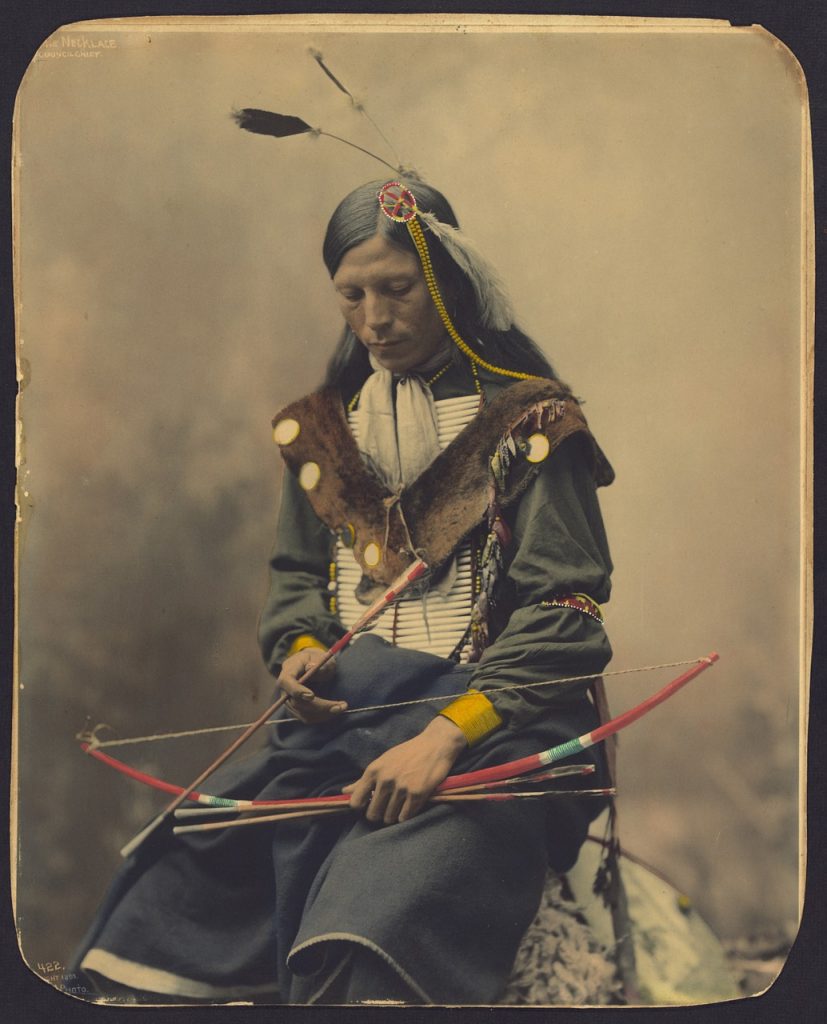10 English Words Borrowed from Indigenous Americans Posted by Gary Locke on Feb 2, 2018 in Culture, English Language, English Vocabulary
A surprising number of words in our English vocabulary can be traced back to the indigenous tribes of the Americas. These are the inhabitants of North and South America before the arrival of Christopher Columbus.
Close to 85% of all English words are originally derived from just three other language sources. According to surveys cited in Wikipedia, much of our vocabulary can be traced to
- 29% Latin
- 29% French
- 26% Germanic
However, settlers in the New World were introduced to many creatures and experiences for which there was no word in our language, so they borrowed words from the native sources and created English words to identify what they were seeing, tasting, and encountering. Some words, like igloo, are obvious, but others may surprise you. The list is long, and many of the words are specific to the areas of the Americas where the European settlers would have first chanced upon them. I have selected a few of the most common, or most surprising words on the list, along with information on the specific indigenous tribe that the word is borrowed from.
-
Chocolate
We have to begin with this word, don’t we? It comes to us from the Nahuatl tribe from Mexico and Central America. It is believed to be derived from combining the Nahuatl words xococ, meaning bitter and ātl, or water. However, some now theorize that the word actually comes to us from the Nahuatl word chicol, which was a special stick used in stirring and making chocolate. Whatever the linguistic origin may be, we can’t thank the Nahuatl people enough, can we?
-
Hurricane
The now extinct Taino tribe from the Bahamas and Greater Antilles region told the Spanish settlers of a fierce weather phenomenon called hurakán, which became the English word we now know and dread.
-
Caucus
From the widespread Algonquin tribe, which ranged from the Northeastern area of North America to the Midwest, we get this word for an assembly of legislative and/or political groups. Its derivation is either from the Algonquian word for counsel, caucauasu; or the Algonquian cawaassough, meaning an advisor, or orator.
-
Potato
The first potato that settlers to the New World ever encountered was the sweet potato of Haiti, which the Haitian Carab people called batata, and the Spanish explorers misinterpreted as patata. You say batata, I say patata.
-
Tomato
Also from the Nahuatl comes the word for our favorite fruit of late summer. They called it tomatl.
-
Cannibal
The Caribs were a widely disseminated people of northeast South America and the Lesser Antilles. They invaded the territory of the Arawaks, killing or displacing the men and taking the women as wives. The later Cariban language became a mix of the two. The Spanish settlers took the Cariban word karipona, meaning person, and turned it into canibalis, based upon their belief that the Caribs ate the flesh of those they killed. Actually, most Arawaks were killed by diseases brought to the region by the Spanish.
-
Tobacco
Speaking of the Arawak tribe, they first introduced the Spanish to tobacco, but the origin of the word is widely in dispute. It probably comes to us as the Spanish word tabaco taken from the Taino word tabako, which either meant a roll of leaves or described the instrument the tribe used with which to smoke the leaves. Thus, it either originally referred to a cigar or to a pipe.
-
Cashew
The Tupi tribe, indigenous to Brazil, introduced the Portuguese to this nut, which they called acaîu, and the Portuguese called caju.
-
Kayak
These tiny boats, powered by double-paddled oars, were (and still are) a staple of life for the Inuit tribe, as they hunted along the inland and coastal waters of Canada, Greenland, and the northwest coast of North America, primarily Alaska. Their word for the watercraft was qajaq, which sounds like the English word we know today.
-
Bayou
The distinctive waterways of the American south were originally named bayuk, or creek river, by the Choctaw tribe. The French later changed the name to bayou.
Can you think of any other English words that we owe to Native Americans?

Build vocabulary, practice pronunciation, and more with Transparent Language Online. Available anytime, anywhere, on any device.




